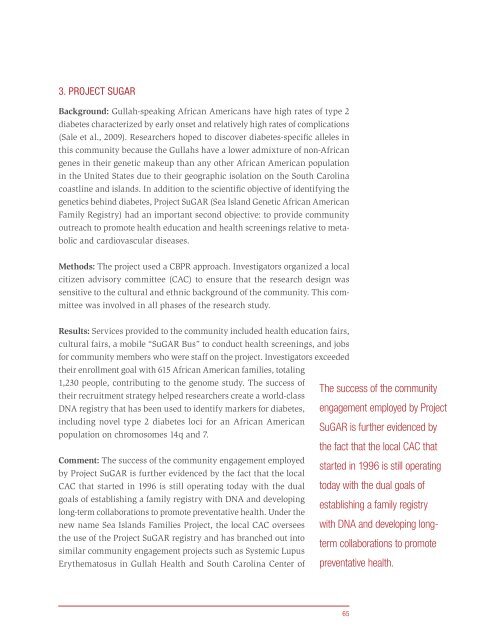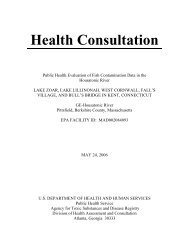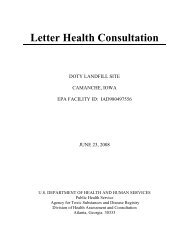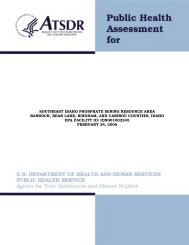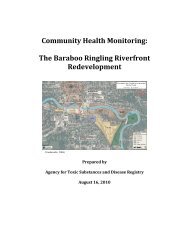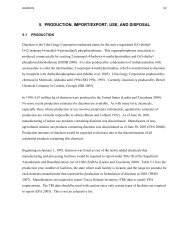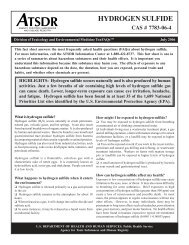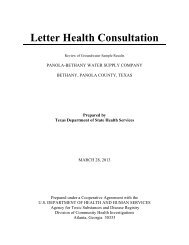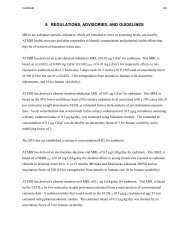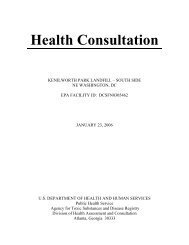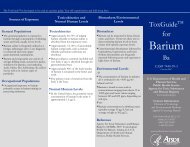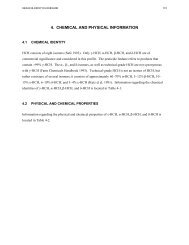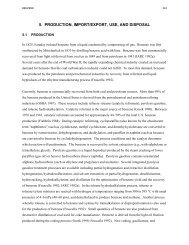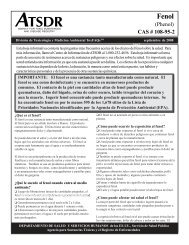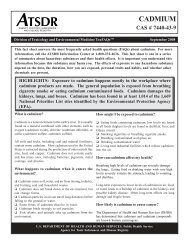Principles of Community Engagement (Second Edition)
Principles of Community Engagement (Second Edition)
Principles of Community Engagement (Second Edition)
You also want an ePaper? Increase the reach of your titles
YUMPU automatically turns print PDFs into web optimized ePapers that Google loves.
3. PROJECT SUGAR<br />
Background: Gullah-speaking African Americans have high rates <strong>of</strong> type 2<br />
diabetes characterized by early onset and relatively high rates <strong>of</strong> complications<br />
(Sale et al , 2009) Researchers hoped to discover diabetes-specific alleles in<br />
this community because the Gullahs have a lower admixture <strong>of</strong> non-African<br />
genes in their genetic makeup than any other African American population<br />
in the United States due to their geographic isolation on the South Carolina<br />
coastline and islands In addition to the scientific objective <strong>of</strong> identifying the<br />
genetics behind diabetes, Project SuGAR (Sea Island Genetic African American<br />
Family Registry) had an important second objective: to provide community<br />
outreach to promote health education and health screenings relative to metabolic<br />
and cardiovascular diseases<br />
Methods: The project used a CBPR approach Investigators organized a local<br />
citizen advisory committee (CAC) to ensure that the research design was<br />
sensitive to the cultural and ethnic background <strong>of</strong> the community This committee<br />
was involved in all phases <strong>of</strong> the research study<br />
Results: Services provided to the community included health education fairs,<br />
cultural fairs, a mobile “SuGAR Bus” to conduct health screenings, and jobs<br />
for community members who were staff on the project Investigators exceeded<br />
their enrollment goal with 615 African American families, totaling<br />
1,230 people, contributing to the genome study The success <strong>of</strong><br />
their recruitment strategy helped researchers create a world-class<br />
DNA registry that has been used to identify markers for diabetes,<br />
including novel type 2 diabetes loci for an African American<br />
population on chromosomes 14q and 7<br />
Comment: The success <strong>of</strong> the community engagement employed<br />
by Project SuGAR is further evidenced by the fact that the local<br />
CAC that started in 1996 is still operating today with the dual<br />
goals <strong>of</strong> establishing a family registry with DNA and developing<br />
long-term collaborations to promote preventative health Under the<br />
new name Sea Islands Families Project, the local CAC oversees<br />
the use <strong>of</strong> the Project SuGAR registry and has branched out into<br />
similar community engagement projects such as Systemic Lupus<br />
Erythematosus in Gullah Health and South Carolina Center <strong>of</strong><br />
The success <strong>of</strong> the community<br />
engagement employed by Project<br />
SuGAR is further evidenced by<br />
the fact that the local CAC that<br />
started in 1996 is still operating<br />
today with the dual goals <strong>of</strong><br />
establishing a family registry<br />
with DNA and developing long-<br />
term collaborations to promote<br />
preventative health.<br />
65


